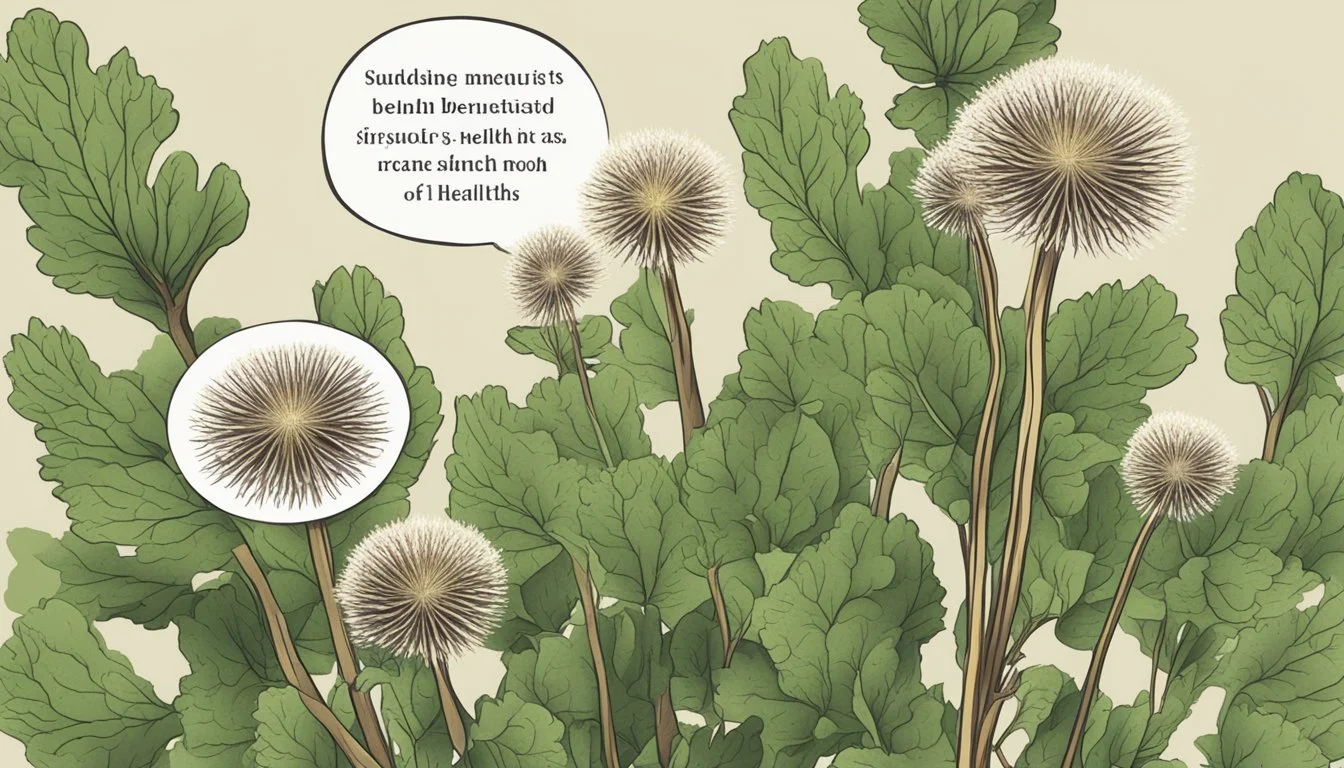What Are the Health Benefits of Burdock Root?
Unlocking the Nutritional Secrets
Burdock root has been historically appreciated for its range of potential health benefits. This root vegetable, native to Europe and Asia, contains the quintessential goodness of nature’s offerings. Rich in dietary fiber and antioxidants, burdock root steps forward as a natural aid that supports overall well-being. Often consumed as part of traditional dishes in Japan, it can also be found as a powdered supplement, tea, extract, or essential oil. Its versatility extends not only to the variety of consumable forms but also to the potential health advantages it provides.
Research, although still at a burgeoning stage, points to burdock root playing a role in supporting a healthy life. It is a good source of inulin, a prebiotic fiber that fosters a favorable environment for gut health. With gut health intricately linked to the immune system, mood, and digestion, burdock root may serve as a valuable addition to a balanced diet. Moreover, the root’s antioxidant properties help it combat oxidative stress, a common precursor to a variety of chronic conditions. Thus, integrating burdock into one's diet could be a step towards reinforcing the body's defense against environmental stressors.
Beyond its internal health implications, burdock root is also explored for its potential skin benefits. It's often included in skincare routines to promote a healthier complexion. However, these benefits are subject to further research to establish their efficacy and safe use. It is essential for individuals considering burdock root for its health benefits to consult with healthcare professionals, as it can interact with other medications and may not be suitable for everyone.
Historical and Botanical Overview
Burdock root has a rich history of use in traditional medicine and is botanically categorized under the genus Arctium. This section will explore its initial uses in various cultures and its botanical spread across the globe.
Traditional Roots
Burdock (Arctium lappa), a herb native to Asia and Europe, has been historically cultivated for its root in traditional Chinese medicine and other Asian cultures. In traditional medicine, it has been prescribed for a variety of ailments due to its perceived detoxifying properties. Its prevalence in Chinese medicine is significant, as it is believed to promote blood circulation and is often used in combination with other herbs to enhance its therapeutic effects.
Global Spread
The transition of burdock from a healing herb to a common weed occurred as it spread to the United States and other regions. Adaptable to various climates, burdock thrived in disturbed soils far from its original habitats in Asia and Europe. While often considered a nuisance weed in many parts of the United States, its roots are still sought after for their purported health benefits. The global spread is a testament to burdock’s tenacity as a plant and its enduring role in herbal medicine across different cultures.
Health Benefits and Nutritional Profile
Burdock root is recognized for its substantial nutritional value and potential health benefits, particularly due to its anti-inflammatory properties, high antioxidant content, and dietary fiber.
Nutritional Content
Burdock root provides a range of essential nutrients that contribute to overall health. It contains significant levels of fiber, including inulin, which aids digestion and improves gut health. The root is rich in vitamins such as vitamin C and B vitamins, and minerals like potassium, magnesium, and selenium. Burdock's low-calorie profile combined with its substantial carbohydrate and protein content make it a nourishing addition to the diet.
Key Nutritional Values per Cup (Approx. 118 grams):
Calories: 85
Carbohydrates: 20.5 grams
Protein: 1.8 grams
Fat: 0.2 gram
Fiber: Inulin and other fibers
Health Efficacy
Burdock root is noted for its health-promoting compounds. It contains powerful antioxidants such as quercetin, luteolin, and phenolic acids. These substances help to combat oxidative stress and may reduce inflammation, thus potentially having a positive effect on health issues related to chronic inflammation. Its antioxidant properties also contribute to overall wellness and may enhance skin health. However, it is important to consider that while burdock root has been traditionally used for its medicinal properties, scientific research is ongoing to fully establish the extent of its health benefits.
Therapeutic Applications and Research
Burdock root has been associated with multiple health benefits, with research highlighting its potential in supporting digestive health, improving skin condition, enhancing blood and circulation, and contributing to joint health.
Digestive Health
Burdock root is known to contain inulin, a type of dietary fiber which supports healthy digestion and enhances the growth of beneficial gut bacteria. Prebiotic properties of inulin can play a role in maintaining a balanced gut microbiome. Studies suggest that such fibers may help to manage diabetes by improving blood sugar control.
Skincare
Research indicates that burdock's antioxidants and anti-inflammatory compounds may assist in addressing skin conditions such as acne and eczema. The root's active ingredients are believed to improve blood circulation to the skin surface, thereby promoting better skin quality and texture.
Blood and Circulation
The enhancement of blood circulation by burdock root compounds has been noted in traditional Chinese medicine as a method to detoxify the blood. While "detoxification" does not align with Western medical terminology, compounds in burdock may support liver function, which in turn is critical for cleansing blood of toxins. There is also interest in the root's potential effects on lowering blood pressure and blood sugar levels, with research ongoing to validate these effects.
Joint Health
Burdock root's anti-inflammatory properties suggest that it could be beneficial for people with arthritis, including osteoarthritis. The reduction in inflammation can alleviate joint pain and stiffness, providing a more natural approach to managing joint-related conditions. However, clinical evidence is needed to fully affirm these benefits for joint health.
Usage and Safety Considerations
When incorporating burdock root into a health regimen, it is essential to understand the various forms it can be consumed in and the potential risks associated with its use. Consumers must be particularly cautious with dosage and aware of possible interactions with medications.
Consumption Forms
Burdock root is available in several consumption forms:
Food: The root can be eaten cooked, often found in Asian cuisine.
Tea: Dried burdock can be steeped to make tea.
Supplements: Available in capsule or tablet form.
Powder: The root can be ground into powder for mixing into foods or drinks.
Extract: Burdock root extract is utilized in various health products.
When taking herbal supplements, such as those derived from burdock, it is important to adhere to the recommended dosage and to consult with a healthcare provider, particularly for individuals under specific medical treatments or conditions.
Potential Risks
Burdock root consumption may pose certain risks, including:
Dehydration: Due to its diuretic effect.
Allergic Reactions: Some individuals might experience allergies, especially those allergic to chrysanthemums or daisies.
Medication Interference: Can interact with blood thinners, diabetes medication, and other drugs.
Children: Not enough is known about its effects, hence not advisable without medical supervision.
Hypoglycemia: May lower blood sugar levels, necessitating caution in those with blood sugar regulation issues.
The Food and Drug Administration (FDA) does not regulate herbal supplements in the same way as pharmaceuticals, therefore the safety and efficacy of burdock root supplements might not be guaranteed.
Consumers should seek guidance from their healthcare provider to ensure safe use and to understand how burdock root may affect pre-existing health conditions or interact with other medications they are taking. It is also rich in prebiotic fiber supporting gut health but must be used with appropriate knowledge.
Frequently Asked Questions
This section addresses commonly asked questions about the various health benefits associated with burdock root, covering specific areas of interest ranging from its general wellness contributions to targeted effects on kidney health, skin, and hair.
What potential advantages can women experience from consuming burdock root?
Women may find burdock root advantageous due to its potential role in hormone balance and its high content of inulin, a fiber that can aid in digestion and promote a feeling of fullness.
Can burdock root be beneficial for improving kidney health?
Burdock root may support kidney health through its diuretic properties, which help to increase urine output, though clinical evidence to fully support this claim is limited.
What are the recognized benefits of drinking burdock root tea?
Drinking burdock root tea is associated with detoxification and blood purification, and it is believed to have anti-inflammatory properties that can help alleviate various health issues.
What impact does burdock root have on skin health?
Burdock root is traditionally used to improve skin health due to its antibacterial and anti-inflammatory effects, which may help in treating skin conditions such as acne and eczema.
In what ways can burdock root contribute to hair vitality?
The intake of burdock root may contribute to hair health by improving scalp circulation and providing essential fatty acids and minerals that are thought to support hair growth and strength.
Are there any specific groups of people who should avoid consuming burdock root?
Individuals taking diabetes or blood-thinning medications, those with certain allergies, and pregnant or breastfeeding women should consult with a healthcare provider before adding burdock root to their regimen due to the potential for interactions and side effects.



